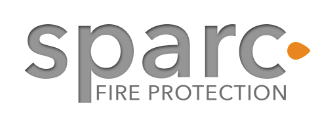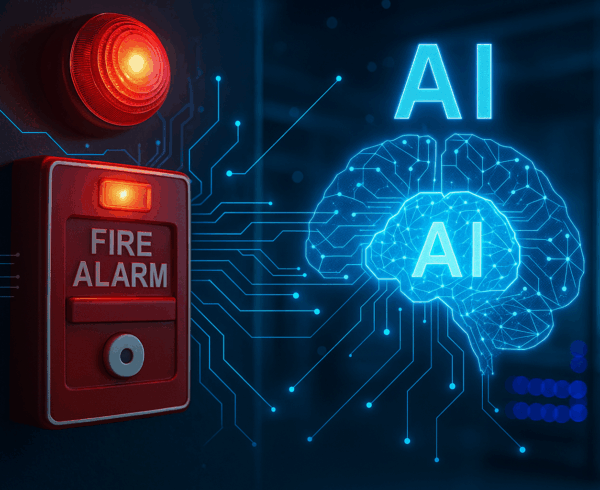In October of 2016 the State of Connecticut adopted new codes which retroactively require sprinklers to be installed in existing high-rise apartment buildings. Many building owners and property managers have been asking if this requirement applies to their building. It’s important to understand if the new code requirement applies to your building and what options are available to comply.
You may be wondering why you haven’t heard of this requirement. Each city or town in the state has taken a different approach to notifying building owners and managers about the new requirements. While some locations have sent letters to the affected buildings, others have simply not started the notification process yet. Regardless of whether or not you’ve been notified, the State of Connecticut has set deadlines for compliance. It is up to the building owner or property manager to take the proper steps.
Where Is The Code Requirement?
There are two sets of codes that can be applicable to buildings in Connecticut; these are the Connecticut State Building Code and the Connecticut State Fire Safety Code. The requirement to install sprinklers for existing high-rise apartment buildings is found in the Connecticut State Fire Safety Code. There are four parts to the Connecticut State Fire Safety Code.
- Part I is administrative
- Part II is “General” and applies to all occupancies and uses located within a building or structure;
- Part III applies to existing building or structures being renovated, altered or undergoing a change of occupancy;
- Part IV applies to existing structures occupied prior to 2005
Part IV contains the requirement to retroactively install an automatic fire sprinkler system for existing high-rise apartment buildings. This part of the Connecticut State Fire Safety Code is based upon the 2012 Edition of NFPA 101, Life Safety Code (National Fire Protection Association). NFPA 101 contains many chapters and each chapter applies to a specific type of occupancy. An example of an occupancy type would be business, residential, assembly, etc.
“All high-rise buildings, other than those meeting 31.3.5.11.2 or 31.3.5.11.3, shall be protected throughout by an approved, supervised automatic sprinkler system in accordance with 31.3.5.2.” – Section 31.3.5.11.1
Does This Apply To My Building?
The next logical question we receive is, “Do I need to sprinkler my building?”. The requirement to install sprinklers only applies to high-rise apartment buildings. A building is considered a high-rise when the floor of
an occupiable story is greater than 75 ft above the lowest level of fire department vehicle access. As a general rule, if the distance to a floor containing apartments is 75-feet above street level, it may be considered a high-rise. However, there are many factors which affect the distance to an occupiable story and each building should be evaluated individually to confirm the high-rise designation.
We are also asked if a condominium is required to install sprinklers. A condominium is required to install sprinklers if both of the following are true:
- The building is designated as a high-rise
- The building contains three or more living units
NFPA 101 explains that a condominium is a type of ownership and not a type of occupancy. Therefore, according to NFPA 101, a condominium is considered an apartment when it comes to determining the code requirements.
Let’s Get Technical
As stated previously, NFPA 101 contains chapters applying to each occupancy. Chapter 31 applies to existing apartment buildings.
Section 31.3.5.11.1 provides the requirement to sprinkler the existing high-rise apartment building by stating:
All high-rise buildings, other than those meeting 31.3.5.11.2 or 31.3.5.11.3, shall be protected throughout by an approved, supervised automatic sprinkler system in accordance with 31.3.5.2.
There are two exceptions contained in the section referenced above which may not require your building to install an automatic sprinkler system. Section 31.3.5.11.2 does not require sprinklers to be installed where every dwelling unit has exterior access. Each building should be evaluated to determine if this exception applies. The second exception to installing sprinklers is located in Section 31.3.5.11.3, where it allows for the development of an engineered life safety system. The engineered life safety system may include a combination of both active and passive fire protection systems. The purpose of the alternative would be to propose a system(s) which provides a level of protection deemed appropriate by the Connecticut State Fire Marshal.
What Is Your Deadline?
The State of Connecticut implemented time limits for compliance with the requirement to install sprinklers. The first deadline is October 17, 2017. By this date, a plan for compliance must be submitted for review by the local fire marshal. The plan must include a specific timetable for implementation. The second deadline is July 1, 2021. The proposed approach, be it installation of sprinklers or an engineered life safety system, must be completed by this date.
Executing The Plan
Although time was given by Connecticut to comply with the requirement, installing sprinklers or an engineered life safety system is probably not a task most owners or property managers envisioned undertaking. More specifically, funding to accommodate the installation must be located and integrated into your capital planning process. Regardless of the method of compliance selected, starting the process earlier will ease the financial burden by allowing for a phased implementation of the approved plan.
Sparc Fire Protection can assist building owners and property managers with feasibility studies to evaluate options for compliance with the Connecticut State Fire Safety Code. Once the method of compliance is selected, Sparc can assist through the entire project implementation which could include:
- Developing engineered life safety solutions for submission to the Connecticut State Fire Marshal
- Preparing design documents for bidding by qualified contractors
- Determining how to phase the installation to work with your financial plan
- Monitoring the installation for compliance with the code
If you would like to discuss your specific building and the Connecticut State Fire Safety Code requirements, contact us.
Let Sparc personalize a solution for your building.



Leave a Comment